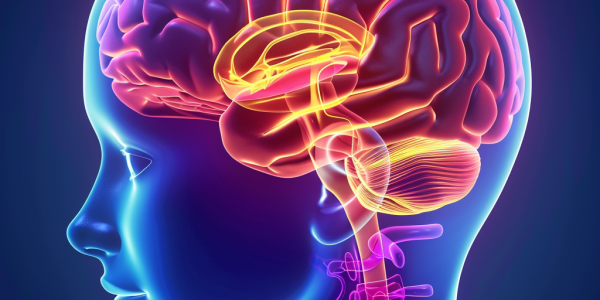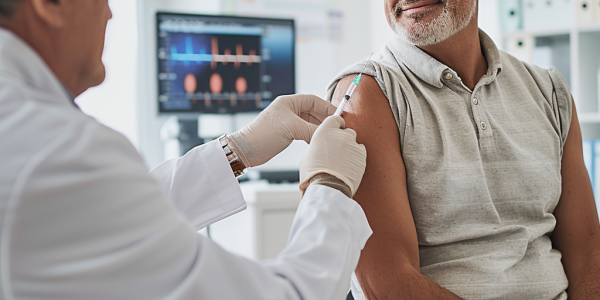Study Reveals Impact of Estrogen Receptors on Cognitive Function in Women
Discover the impact of estrogen receptors on cognitive function and aging in the female brain. Recent research highlights the role of 17β-estradiol and ER density in brain function, with implications for memory and mood symptoms in menopausal women. Learn more about the potential for targeted interventions to support cognitive health and emotional well-being during and after menopause.
Declining Testosterone Levels in Men: South Florida Doctors Offer Solutions
Discover why men’s testosterone levels have been declining and how South Florida doctors are offering new solutions to combat the problem. Learn how low testosterone can impact sex drive, energy levels, and more, and find out about the various options available to raise testosterone levels.
The Impact of Marketing on Testosterone Discussions
Learn about the shifting conversations around testosterone levels, the impact of marketing on healthcare practices, and the importance of understanding testosterone’s role in bodily functions. While testing for low testosterone levels is crucial for symptomatic individuals, unnecessary testing is discouraged for asymptomatic individuals according to medical experts.
Low Testosterone Levels Linked to Higher Risk of Premature Death in Men, Study Finds
A recent study reveals that men with low testosterone levels are at a higher risk of premature death. Testosterone plays a crucial role in various bodily functions, and declining levels can lead to serious health issues. Understanding this connection could help improve men’s health and longevity.
Study Links Low Testosterone Levels in Men to Increased Risk of Heart Disease
Discover the potential connection between low testosterone levels in men and a higher risk of heart disease. This study emphasizes the importance of monitoring testosterone levels as men age to address heart health concerns. Consult healthcare providers for proactive well-being management and stay informed about the complex relationship between hormones and cardiovascular wellness.
New Hormone-Producing Cell Linked to Monogamous Behavior in Mice
A recent study published in Nature by scientists at Columbia University’s Zuckerman Institute reveals the discovery of a new hormone-producing cell in monogamous mice, shedding light on potential links to nurturing behavior and monogamy. The unique adrenal cell type produces 20⍺-OHP, enhancing nurturing behavior in mice and offering insights into human parental behavior and postpartum depression treatments. This groundbreaking research compares the mating behaviors of deer mice and oldfield mice, highlighting the role of hormones in shaping behavior and providing valuable insights into the mechanisms underlying monogamy.
Study Reveals Impact of Pasteurization on Hormones in Donor Breast Milk
Recent research from La Trobe University reveals the impact of pasteurization on essential hormones in donor breast milk, specifically melatonin. High-temperature pasteurization reduces melatonin levels by 23.6%, potentially affecting the circadian rhythm of pre-term infants. Dr. Lauren Booker emphasizes the importance of preserving melatonin in donor milk for healthy infant development.
New Study Finds Hormone Therapy for Menopause Symptoms Safe and Beneficial
Recent study published in JAMA challenges previous beliefs about hormone therapy for menopause symptoms, emphasizing its safety and benefits. Dr. JoAnn Manson’s research reveals that low-dose estrogen therapy is now considered safer and more effective, prompting a reevaluation of hormone therapy recommendations. With advancements in hormone options, experts advocate for a reconsideration of hormone therapy for menopausal symptoms.
Understanding PCOS and PCOD: The Differences and Symptoms
Learn about the differences between PCOS and PCOD, two common hormonal disorders affecting women of reproductive age. PCOS is a reproductive disorder causing hormonal imbalance with symptoms like irregular periods, acne, and increased risk of heart disease and diabetes. PCOD, previously known as a disease, is now understood as a syndrome where ovaries produce immature eggs. Both conditions are related to genetic and environmental factors, with PCOS also linked to type 2 diabetes and heart disease.
The Science of Happy Hormones
Learn how happy hormones can affect your mood and well-being. Discover science-backed activities to encourage the production of feel-good chemicals like serotonin, dopamine, endorphins, and oxytocin. Find out what these happy hormones are and how they manifest in our bodies.










